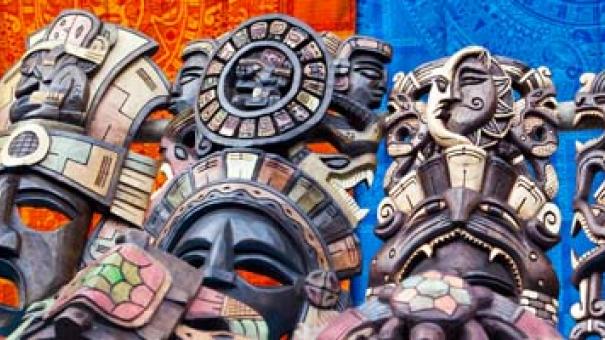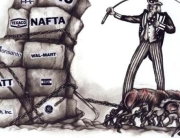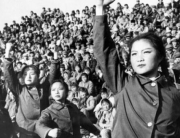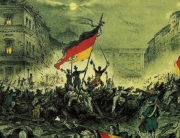*Por Marcelo Gullo
These lines intend to be a “peripheral thinking”, a reflection attempt from our being somewhere, and being someone. A peripheral thought about international relations, convinced that – as Stanley Hoffmann would say – “Born and raised in America, the discipline of international relations is, so to speak, too close to fire”, and that “It needs triple distance: it should move away from the contemporary, toward the past; from the perspective of a superpower (and a highly conservative one) toward that of the weak and the revolutionary – away from the impossible quest for stability; from the glide into policy science, back to the steep ascent towards the peaks which the questions raised by traditional political philosophy represent.” (Hoffman, 1991:35).
We aim at an analytical and historical study of the international relations from a peripheral view. To analyse the past, to understand the on-going processes and project hypothesis about the future, we are aware of the need of an appropriate system of categories that cannot be a whole as the one prepared by the highest centres of excellence in the core countries. It is for this reason that our most profound goal is to prepare some notes that, after a long process of discussion, argumentation and refutation, will serve to elaborate a critical theory about the international relations. This is precisely what we have developed within the first chapters.
We wish to clarify that in general, our critical stance does not imply either the ignorance or the rejection in its whole of the intellectual work developed in the core countries – particularly in America, where the discipline of international relations was born. On the contrary, the idea is to develop a critical analysis of that intellectual piece of work in a way not to accept it as a scientific doctrine “disguised” as a theory, or as to say, theories contaminated by doctrines.
We consider of the essence the need of a critical stance – being the case that, normally, in periphery countries, as Hoffmann would also stand out – experts in international relations frequently tend to reflect or somehow “slavishly” reproduce “American fashions” – sometimes even outdated (debates and categories of analysis in vogue). By doing so, they also reflect and serve the political interest of the American government due to the existing bonds this country has between the academic world and the world of power. A great number of academics and researchers are left not as standing at a “prelude to power” but “in its kitchen”.
We must also clarify that, when trying to prepare these notes towards a critical theory about international relations, we are aware of what Raymond Aron has reliably proved many years ago: A Theorist in international relations will never be able to elaborate a general law to make predictions. What can be done is not more than making comprehensible the field of analysis by defining basic concepts, analysing essential aspects, and sketching those characteristics that are permanent, with a constant logic along time.
Following, our purpose is to make a trip to the past, to go towards the sources from where the configuration of the current world power and the most important phenomena in the international scenario originated from.
It is undoubtedly that, since our needs are different from those of the core countries, different are the lessons we look for and try to find out in history. We must learn how to study history with our own view, our own eyes. Our intention is to dive in the sea of history trying to find those lessons that will help us explain and get beyond the present, this present that is also challenged with critical consideration.
We dig deep into history with a clear goal: to analyse the historical development of the power of nations that have become some of the principal actors in the international system since the beginning of the process of globalization – more than 500 years ago until today.
Shall the reader take into account that we will only analyse some examples of succeeding countries in the process of building their own national power. The idea is to identify some lessons from those historical experiences that may be useful for our countries to “emerge” from the periphery. The aim of this analysis is to build our own national power and achieve higher levels of autonomy.
The reader must also take into consideration that we have focused more sharply on some factors that have contributed to the development of the power these countries have achieved, i.e. those factors that made them reach the threshold of power needed in each moment in history. Consequently, we only concentrate on decisive factors, but aware that we are leaving behind important elements of analysis in the construction of power and that all factors that merge into the power of a Nation are interrelated and constantly influence one another.
In this part of our analysis, we state herein below the hypothesis that shall guide our research:
1) Nations placed in the periphery of the global power structure can only change their role from “objects” into “subjects” of the international politics by means of a founding insubordination.
2) The State Pulse is, in general, in the origin of the power of a Nation. It is this pulse which triggers a chain reaction of all the elements that – potentially – compose the power of a State.
3) All successful emancipatory processes were the result of a suitable combination between an attitude of ideological insubordination towards an hegemonic way of thinking and an efficient State Pulse.
If we analyse the real history of the core countries that have the most power in the world, we will reveal the fact that – in general – they could build their current power through the State Pulse in its different aspects:
Overt or covert Government Grants for Science and Technology, public investments, protective measures for the domestic market, are just some – to mention the most relevant ones.
Today, these same countries are the ones that not only hide the importance their own State Pulse had when building their own national power, but also criticize, ridicule and pester any peripheral Nation willing to follow suit to reach their same level of power.
Through an ideological propaganda engendered in some of their universities and spread all over the world by the Media controlled by these powerful countries, they try to “kick” the ladder they used to climb first to reach their current national autonomies and climb till the peak of the worldwide power.
After travelling through the past, we will return to the current international scenario to project some hypothesis about the future. Our aim will be to outline and objective analysis of the big structural trend in the international system and identify – as an hypothesis – some of the most dangerous challenges and most important opportunities that we will face during this century. Changing from the field of theory to the field of doctrine, we will focus on what to do; on what Argentina, Bolivia, Brazil, Chile, Peru and the other South American countries should do in the new international scenario, to overcome their respective peripheral condition.
This overcoming would let these countries, among other things, free millions of children from living in shanty towns or slums, calling them with the proper name used in each of these countries: “villa miseria“ in Argentina, “favela” in Brazil, “cantegril uruguayo” in Uruguay, “pueblos jóvenes“ in Peru”. This overcoming would also free them from the scourge of extreme poverty, the violence and the drugs. This would also give these countries the possibility of including – from a structural point of view and not just by chance – the unemployed or sub-employed, those who live in the outskirts of the big cities of South America. An inclusion in the economic process by letting them enhance their productivity capacity instead of keep them surviving by means of giving them an unbecoming “Assistencialism” which deprives them from developing their own cultural and spiritual being, leaving them vegetating in front of the “telly”.
The idea is to think from the periphery to leave the periphery.







Seguir
Facebook
LinkedIn
Youtube